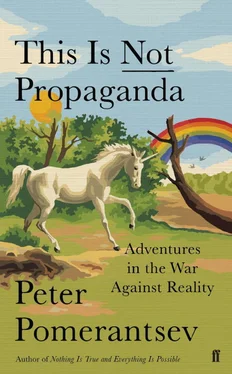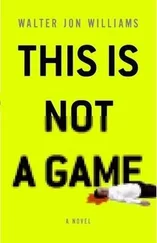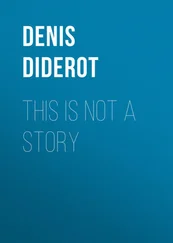The most obvious were ‘state-directed’ campaigns, where the regime gave instructions on whom to target, how and when, though didn’t necessarily take part in the campaign itself. This is the case in Venezuela, where the Maduro government has set up closed social media channels through which it directs enthusiasts on whom to attack, with what messages and when, but doesn’t carry out the work itself.
For a modicum of deniability one could work through a youth movement. In Azerbaijan, for instance, there is Ireli, created ‘to produce young people who can take an active part in the information war’. In practice this means sending online threats to critical journalists, like Arzu Geybulla: ‘I’ve been called many things: a slut, a dog, a pig – you name it. These insults involved my ill mother and deceased father. She was a whore; he was a traitor who slept with an Armenian slut.’
More subtle was the situation in Bahrain, where, during protests in 2011, an Internet account suddenly popped up which showed close-up photographs of protesters, alongside their home addresses and personal phone numbers. There was even a link to a government hotline you could phone to report protesters directly to the regime. Who was behind the account? Nothing was ever proven, but after the government was told about its existence, they did nothing to stop it. Wasn’t that enough, thought François, to hold them responsible? She classified this as a ‘state-coordinated’ campaign.
Another layer of deniability was to merely fuel attacks, but then take no part in their enactment. This is the case in Turkey, where columnists who are members of the ruling party incite mob attacks on anyone who dares criticise President Erdoğan. This sort of ‘state-inspired’ approach can also have its downsides: sometimes the columnists target the wrong person, and the president has to call off the attack by signalling he supports the victim.
These sorts of state-inspired campaigns have also become a feature in the US. The Institute for the Future report relates instances when the White House’s social media team, websites that support the president and indeed the president himself have identified journalists, academics and opposition staffers as ‘scum’, ‘slime’ and ‘enemies of the people’. The targets then receive vats of online vitriol, phone calls to their place of work demanding they are sacked, and death and rape threats.
This sort of activity led Freedom House, a Washington-based organisation that rates press freedom, to downgrade the US’s standings in 2017: ‘Fake news and aggressive trolling of journalists… contributed to a score decline in the United States’ otherwise generally free environment.’ Freedom House was created in 1941 as a tool with which to fight totalitarian regimes. It advocated for Soviet dissidents in the Cold War. Now it increasingly focuses on abuses of freedom inside the US (not for the first time: in the 1950s Freedom House also fought publicly against the anti-Communist witch-hunts of US Senator Joseph McCarthy).
Having established a scale of attribution, François began poring over legal documents. States had a legal obligation, enshrined in their UN commitments, to protect their citizens’ fundamental rights. There was certainly nothing that defended a state’s ‘right’ to use automated and fake personas to drown out, threaten and demean its critics.
The issue was no longer whether state-sponsored trolls had ‘freedom of expression’, but whether this was being abused to suppress the victims’ human rights. This was censorship through noise. ‘We observe the tactical move by states from an ideology of information scarcity to one of information abundance,’ writes law professor Tim Wu, ‘which sees speech itself as a censorial weapon.’ [18] Wu, Tim, ‘Is the First Amendment Obsolete?’ Knight First Amendment Institute, Columbia University, September 2017. https://knightcolumbia.org/content/tim-wu-first-amendment-obsolete .
It will need a landmark case to set a precedent so that a troll farm and the state that sponsors it are brought to justice. In the meantime Camille has put all her efforts into persuading the tech companies themselves. And to a certain extent she has succeeded. Between 2015 and 2018, social media companies like Facebook and Twitter at least began to admit that coordinated campaigns actually existed, began to take down offending accounts.
I was reading through François’s research one morning at a Washington DC hotel, in the strange time lapse of jet lag where the usual logic of day and night is broken, and perhaps because time seemed to have lost its hold on me, unnatural exuberance took over. In this foolish hour it seemed to me François’s vision was just around the corner. I started imagining a future where all the world’s great powers and digital companies would promise to safeguard human rights online. Tech companies would protect dissidents by warning them when a campaign was building to target them, instantly taking down trolls, punishing them so they could never harass anyone again. States would no longer abuse ‘freedom of speech’ to crush those who speak truth to power; working for a troll farm could no longer be shrugged off as ‘normal’…
Sauntering down to the cramped lobby of my hotel I snapped out of my reverie when I saw Maria Ressa. I hadn’t seen her for three months and wondered whether the threats against Rappler had subsided. She showed me a text message she’d just received from Glenda Gloria. It contained an image of a thick file: a tax evasion charge against Maria personally, which carried a potential sentence of ten years in jail. Maria was leaving for the airport; she had a flight to catch to Singapore, before heading back to Manila. She managed to post bail, but a few months later there was another charge, this time accusing her of libel for a piece from 2012. I watched a Facebook live stream as she was arrested in the Rappler office, before being released again the next day. Rights groups condemned the charges as politically motivated. [19] Gavilan, Jodesz, ‘Maria Ressa’s Arrest Part of Broader Gov’t Campaign, Say Rights Groups’, Rappler, 14 February 2019, updated 15 February 2019; https://www.rappler.com/nation/223457-human-rights-groups-statements-maria-ressa-arrest .
In between arrests and interrogations Maria received the 2018 Knight International Journalism Award, one of the world’s most prestigious. ‘Exponential lies on social media incite hate and stifle free speech,’ said Maria as she collected her statuette. ‘We battle impunity from the Philippine government and from Facebook. Why should you care? Our problems are fast becoming your problems. Boundaries around the world collapse and we can begin to see a kind of global playbook.’ [20] International Center for Journalists, ‘Maria Ressa Accepts the 2018 Knight International Journalism Award’, 2018; https://www.icfj.org/maria-ressa-accepts-2018-knight-international-journalism-award .
But despite all the international attention Maria’s words mustered, the attacks and cases against her continued, as if someone was trying to say that freedom of speech, in the older sense of being able to shout about your cause to the wider world, was meaningless.
You will need to check for yourself whether Rappler’s story has had a sad, happy or indeed any ending. But it was already clear when writing this in early 2019 that Maria was no longer just a reporter commentating on current history, but a symbol of how easily it could be undone. That was the paradox of the new media. It was meant to take us further into the future; instead, it has brought back the past – misogyny we had thought conquered, regimes thought laid to rest. The very form of social media scrambles time, place, proportion: terror attacks sit next to cat videos; the latest jokes surface next to old family photos. And the result is a sort of flattening, as if past and present are losing their relative perspective.
Читать дальше












